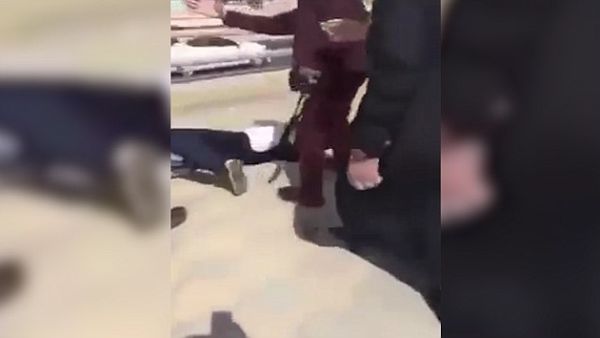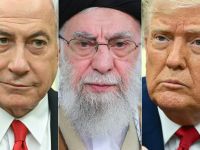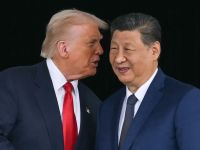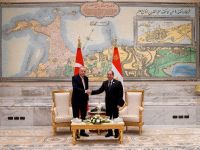Last week, Saudi Arabia announced dramatic reforms to its religious police force, the mutaween, who are charged with enforcing Islamic law in the Kingdom. The mutaween are notorious for arresting women who aren't ‘dressed’ or rather covered correctly, and for issuing summonses to shop owners who don't close during prayer time.
But those days, it seems, are over. On 12 April, the official Saudi Press Agency announced that the mutaween--formally known as the Committee For The Promotion Of Virtue And The Prevention Of Vice (also referred to as the Hai'a)--will no longer be allowed to stop, question, pursue or arrest people.
It leaves one wondering what, exactly, they're still allowed to do. The new rules, which were approved six days earlier by the Saudi cabinet, leave the morality police with only the power to report violators of Islamic law to the real police or drug enforcement officers.
But whence comes this act of such beneficence? Saudi Arabia is not one to give out favors for free--especially if it might compromise their carefully-cultivated image as the purveyor of puritanical Islam. The ruling royal family, the ‘Sauds’, have been longstanding friends of the religious police who it could be said helped them consolidate power in the first place. That is not to say that Saudi royals haven’t tried to curb their clout in the past.
"I suspect Saudi Arabia is trying to look more moderate," Max Abrahms, a professor of political science at Northeastern University in Boston and a member at the Council on Foreign Relations, told Al Bawaba.
"There's a fear that the US is cozying up with Iran as reflected in the nuclear deal," Abrahms said. "The Saudis are also increasingly coming under the lens for their involvement in 9/11 and the botched campaign in Yemen," he said, so they may feel like they "need a cultural facelift" to remain on America's good side.
To be sure, Saudi Arabia is not immune from public criticism, and seems particularly sensitive to allegations that it might have played some role in the 9/11 attacks, even though the US government has sought to obscure any possible links between Saudi officials and the attacks on the Twin Towers.
On Friday, the New York Times reported that Saudi Arabia's foreign minister had told the Obama administration in March that Saudi Arabia would be forced to sell over $700 billion in US assets if the US Congress passed a bill allowing Saudi Arabia to be held responsible for 9/11.
If King Salman's goal is to make his regime appear more moderate in order to convince the US to keep it as a close ally, reining in the religious police would be a good way to do it. The excesses of these government-salaried vigilantes have long caused public relations headaches for the House Of Saud.
For example, a video filmed at a mall in Riyadh in February that appeared to show members of the mutaween chasing and assaulting two women subsequently went viral, causing outrage in the Kingdom and abroad. In 2013, four mutaween members were accused of causing a car accident that left two brothers dead--the mutaween had allegedly chased the brothers after they refused to turn their radio down. (The officers were later acquitted of having caused the fatal crash, but the ruling did little to change public opinion of the sharia cops' over-zealousness and abuse of power.)
Perhaps most egregiously, the mutaween were accused in 2002 of having prevented a group of schoolgirls from escaping from a burning building because they weren't dressed according to Islamic modesty standards. Fifteen of the schoolgirls perished in the flames.
"Obviously the leaders of Saudi Arabia, the political leaders, have decided that the religious police is doing more damage than good and they are very much concerned with the popular misgivings about recent incidents in the Kingdom," Fawaz Gerges, a professor of Middle Eastern studies at the London School of Economics, told CNN.
If it’s bad press that the Kingdom wishes to counter, then cutting down the promotion of the virtue squad might help quell the Saudi stream of media that never dries up on the more ‘silly side’ of morality policing. Too often, they’ve been the subject of mockery by regional and international press for attempting to ban dolls, cinemas, dancing, board games, Valentine’s Day, camera phones, ‘dinosaurs’, and all manner of things they deem unpalatable for denizens of the land of the two Holy Mosques. They’re sitting targets for spoof edicts in their name too.
Yet it’s not good news for all. While these puritanical police strike fear into the hearts of most citizens, there has been significant pushback and a hashtag doing the Twitter rounds to show for such resistance: "Give the Virtue Police its Powers Back".
Only time will tell how significant such recent reforms are. "The Saudis seem to be making an effort to appear more like other nations," Abrahms told Al Bawaba. "Whether this move will be part of a larger suite of reforms remains to be seen."








